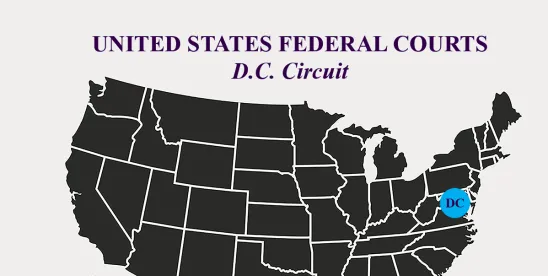The U.S. Court of Appeals’ decisions reviewing National Labor Relations Board (“NLRB”) orders continue to roll in.
Most recently, on June 27, 2025, the D.C. Circuit upheld an NLRB ruling that George Washington University Hospital (“Hospital”) engaged in bad-faith bargaining during its 2016 to 2018 negotiations with 1199SEIU United Healthcare Workers East (“Union”). The three-judge panel unanimously upheld the NLRB’s 2024 determination that the Hospital’s conduct—centered around three core proposals—amounted to unlawful surface bargaining in violation of Sections 8(a)(1) and 8(a)(5) of the National Labor Relations Act (“NLRA”).
In 2021, a divided Board reversed the Administrative Law Judge’s (“ALJ”) finding of surface bargaining. However, the Board vacated the decision upon learning that then-Member William Emanuel, who joined the majority, owned shares in a mutual fund that included the Hospital’s parent company. Member David Prouty was added to the reconstituted panel, and in May 2024, the Board reversed course and adopted the ALJ’s findings and conclusions, determining the Hospital had engaged in bad-faith surface bargaining.
Why the Court Found Bad Faith
The court concluded that bad-faith surface bargaining was present because the Hospital insisted on three proposals that, taken together, would have severely undermined the Union’s role, leaving Union employees worse off than if no contract existed.
- Expansive Management Rights Clause. The Hospital proposed sweeping authority to: assign unrestricted amounts of bargaining-unit work to supervisors; subcontract without restriction; search employees without notice; discipline employees without cause; unilaterally change benefits; determine which positions were part of the bargaining unit; and determine the existence of bargaining unit work and the extent to which that work could be performed. The court found the Board reasonably inferred this would have effectively stripped the Union of its statutory right to bargain.
- No-Strike Clause Without Arbitration. The Hospital sought to prohibit all strike and picketing activity—without offering binding arbitration in return. The court held the Board reasonably found that such a clause, without a corresponding meaningful dispute resolution mechanism, deprived the Union of a core statutory function and rendered its role illusory. The court also rejected the Hospital’s argument that this proposal was not evidence of bad-faith bargaining because it withdrew it, given the withdrawal occurred only after the Union filed its unfair labor practice charge.
- Elimination of Binding Arbitration. The Hospital proposed replacing arbitration with nonbinding mediation – even for terminations – and maintained its insistence on a mediation-only model, despite the Union’s repeated objections. This marked a regression from earlier proposals and offered no viable mechanism for challenging employer decisions.
The court agreed with the NLRB that these proposals, especially when maintained over 14 months of negotiations, reflected an intent to subvert bargaining and constituted surface bargaining.
The court also upheld the Board’s procedural decisions, finding no error in the Board vacating its earlier ruling after discovering Member Emanuel’s financial conflict of interest, since federal ethics laws prohibit participation in matters where a financial interest exists. Additionally, the court rejected the Hospital’s challenge to Member Prouty’s participation, concluding that his prior role with a different SEIU-affiliate posed no conflict, especially after ethics officials confirmed his impartiality.
Takeaways for Employers in Difficult Bargaining
This case serves as a cautionary tale for employers navigating contentious labor negotiations, especially when proposing significant changes to longstanding contract provisions. This decision offers several important lessons for employers:
- Hard Bargaining Has Limits. The NLRB’s role is not to make either party agree to a particular proposal, but to safeguard the process of bargaining. While employers can propose aggressive terms and reject aggressive terms posed by unions, the proposals may be scrutinized in their totality. The NLRB considers whether certain proposals—particularly ones that an employer insists upon throughout negotiations—would leave employees worse off than if no union existed, which may signal bad faith.
- Balance Is Key. Provisions like no-strike clauses are typically acceptable when paired with meaningful dispute resolution mechanisms (e.g., binding arbitration). Removing one without the other can be seen as undermining the bargaining process.
- Consistency and Context Matter. The totality of conduct—including the history of negotiations, timing of proposals, and responses to union concerns—will be scrutinized. Regressive bargaining or refusal to meaningfully engage will invite claims of bad faith.





 />i
/>i
